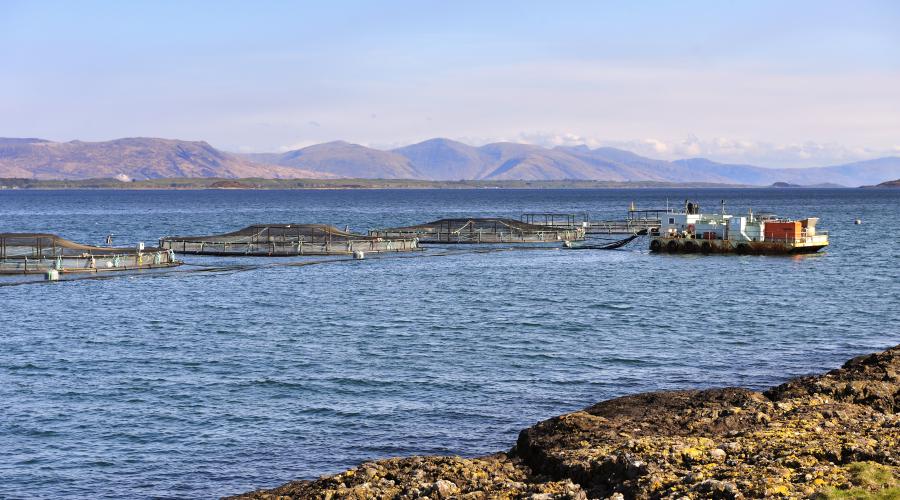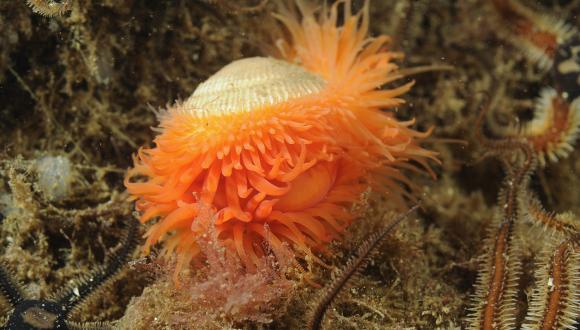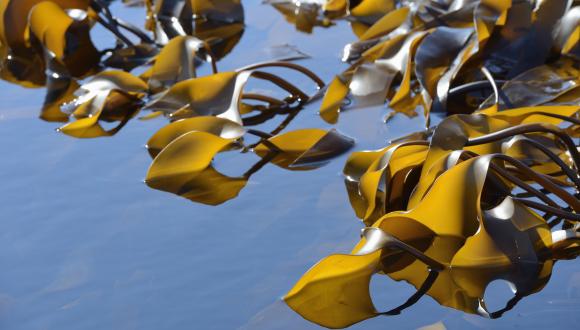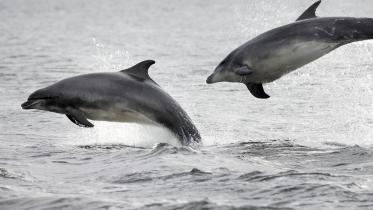
Marine aquaculture
We aim to steer fish farming towards the most suitable locations and technologies to safeguard Scotland’s nature and landscapes.
NatureScot supports the sustainable growth of Scotland’s aquaculture industry – otherwise known as fish farming.
Our approach to planning and development is to help deliver good development in the right places.
To do this, we:
- help planning authorities to prepare development plans, Aquaculture Framework Plans and Integrated Coastal Zone Management Plans
- engage with developers and planners at the pre-application stage to help guide developments towards the most appropriate locations
- advise on planning applications and Controlled Activities Regulations (CAR) licences as a statutory consultee
- support and promote marine planning to guide the sustainable growth of Scottish aquaculture
Aquaculture working arrangements
We are one of four bodies with a statutory role in advising planning authorities on aquaculture planning development. A working arrangement document has been agreed which sets out each body’s roles and responsibilities as well as how we consult one another and share information.
Read the Working arrangement on the Scottish Government website:
Requirements of Statutory Consultees and consultation protocol for marine aquaculture planning applications
The working arrangement is between:
- Scottish Environment Protection Agency
- NatureScot
- Marine Scotland Science
- Association of Salmon Fishery Boards
Sustainable aquaculture
We sit on the Aquaculture Industry Leadership Group, which had its inaugural meeting in early 2017. The group aims to help guide the sustainable growth of the industry over the long term to 2030.
We feed in to the Capacity Working Group, which aims to help promote sustainable growth by focusing on capacity, barriers to sustainable growth, and streamlining regulation and consenting.
Guidance
Learn how to assess the character and visual qualities of the coastal landscape and seascape, and how to address the landscape and visual impact of marine aquaculture developments.
View and download:
- Guidance on Landscape/Seascape Capacity for Aquaculture
- The siting and design of aquaculture in the landscape: visual and landscape considerations
- Visualisations for aquaculture: guidance note
Interim guidance is also available on pole-mounted top nets and marine birds and the information required if seeking advice from us on the proposed use of such netting. See:
Commissioned research
In 2011, we commissioned pilot studies into landscape/seascape capacity for aquaculture for Orkney and the Western Isles. The results informed the above guidance on landscape and aquaculture.
Contact
To discuss an aquaculture development, get in touch with the relevant NatureScot area office.





